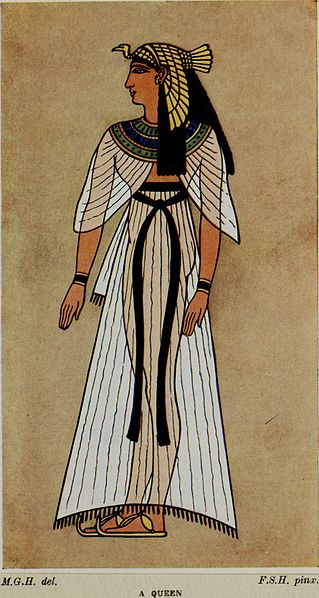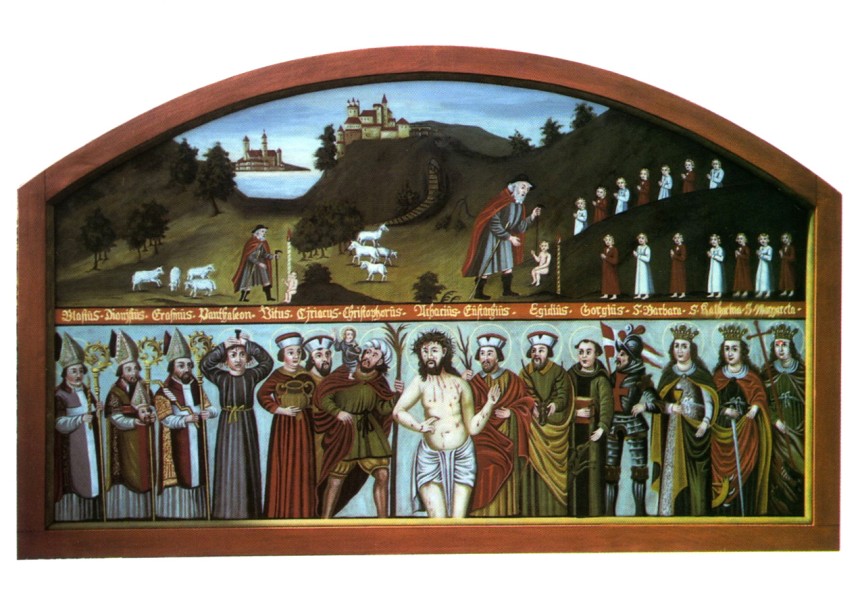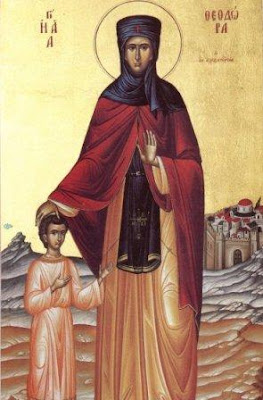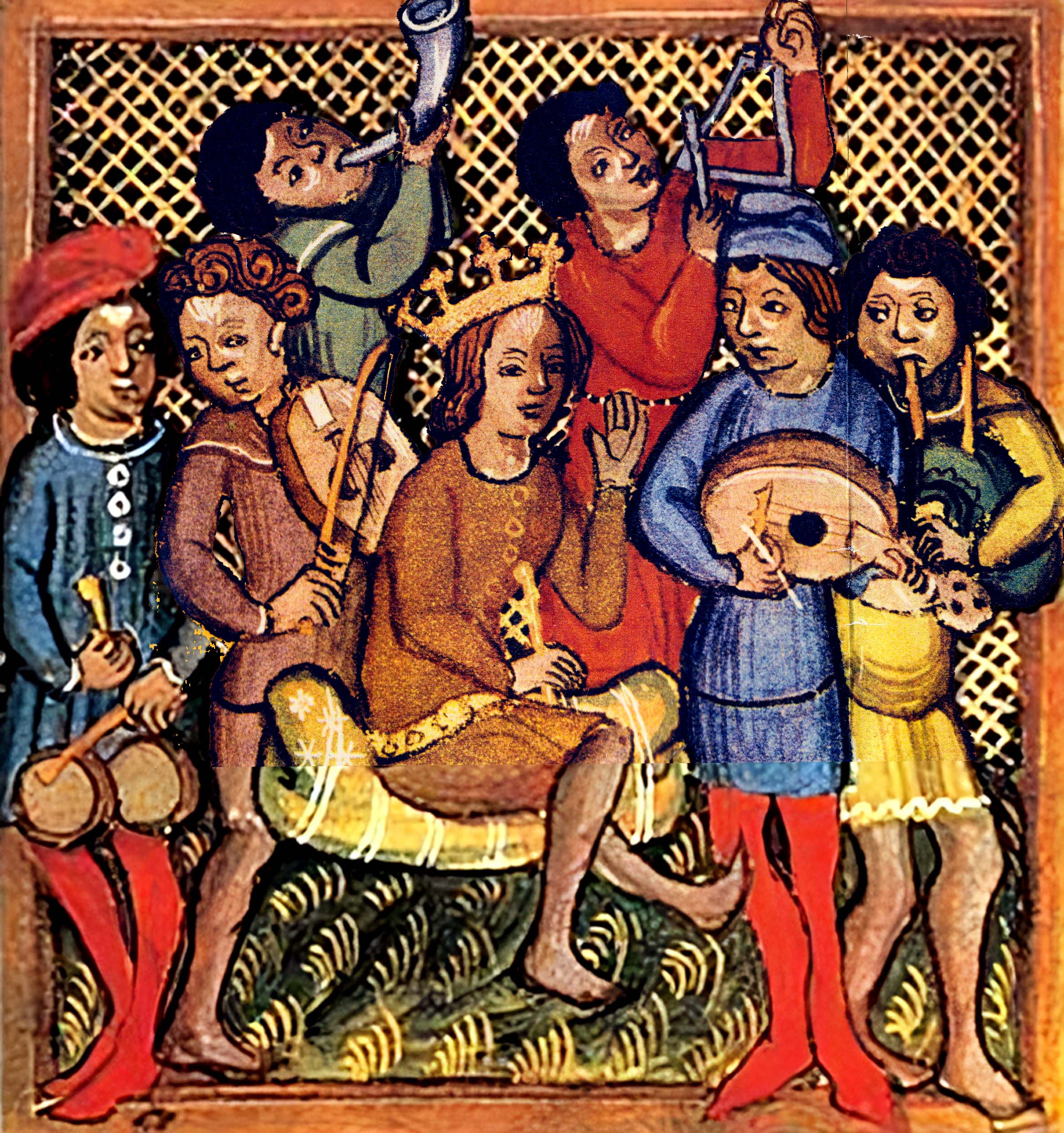One sunny day, a carpenter was walking alone in the woods. He stopped when he saw a tree made from the most beautiful wood he had ever seen. Not wanting to risk such a great opportunity, he stopped immediately to carve a large piece from the tree. He wondered what he should design. He decided to carve the most beautiful woman he could imagine as only that would be fitting for the most beautiful wood. When he was done, he went into town to find men who could help him carry his statue.
Next came a jeweler who saw the beautiful carving. "A woman so beautiful is worthy of the finest jewelry." he adorned the statue with his greatest pieces. Seeing no owner in sight, he went into town to find some men who would help him carry it.
Next a tailor came down the rode. Upon seeing the statue beautifully carved and bedecked in fine jewelry, he thought "A woman so beautiful is worthy of the finest clothes." When he learned there was no one near to claim the prize, he headed towards the town to find some men who could help him carry the woman made of wood.
Lastly came a man who had lost everything in a fire. He had no home, money, food, and only rags to cover his body. He saw the beautiful statue with beautiful clothes and jewelry from afar. Looking around for an owner of the statue and seeing no one, he jumped for joy at his luck. He ran towards the statue in order to take her finery and sell it. Looking at the face of this beautiful woman, he was reminded of his wife he had lost in that destructive fire. He remembered how he had never been a rich man, but he had always been happy when he had his wife at his side. More than possessions, he wanted someone to spend his days with.
"Oh gods of life, love, and mercy! I beg you pity a sad, starving man. Though I may crave sustenance or wealth, I need to not be so lonely. Give me someone who will love me, and whom I can love as I once loved my wife." And with that he fell at the feet of the statue, weeping.
When the woman opened her eyes, she was surprised to find she had been given the gift of life. Having watched passerby's wonder before her tree for years, she had always wanted to take part in life the way they could. She looked down to see the man crying and her newly formed heart opened for him.
 |
| "Mrs Richard Brinsley Sheridan". Painting by Gainsborough Source: Wikipedia |
The man looked up in shock. Once the awe had faded enough to plan, they decided that they should go into town, pawn her finery, and find an inn for the night.
However when they got to town, they found a crowd of people. At the center of the crowd, three men were arguing.
"Let me take my men to bring it home for myself!" the carpenter shouted. "I created it originally from the tree!'"
The jeweler and the tailor began shouting about how they had both given up their finest goods to ornament it in the beauty it deserved.
"Wait," the carpenter said. "Isn't that the statue?"
The whole crowd turned to see the most beautiful woman in the finest jewels and clothes walking along side a man of obviously no fortune.
"What is the meaning of this?" they all demanded. The poor man explained how the gods had granted her life at his supplications.
"Well she should be mine!" The four began shouting.
The woman was appalled at the ferocity of the men who demanded to possess her based purely on her appearance. So she devised a plan.
"Gentlemen, might I solve this problem? I shall marry whichever man has the most to offer me."
The carpenter, the tailor, and the jeweler immediately began running home to grab their most valuable items to impress the woman. The poor man stood silently, puzzled at what to do. But soon he fell to his knees and began praying aloud. He asked the gods to grant him whatever he needed to win this woman he had fallen in love with. He did not ask for money or finery, merely whatever was necessary, calling for the wisdom of the gods.
After they had all returned, each man took his turn presenting what he thought would most impress the woman. She stood stoically, not betraying a hint of emotion. Three of the men had had their moment, leaving only the poor man left to present his case.
He stood before the woman, shoulders slumped, but hope in his eyes. "Madam, I am all I can offer," and he held forth his empty hands. "I only pray I can ever be enough for you."
Suddenly, a gold mist surrounded the man, shielding him from the gaze of everyone there. When the mist disappeared, the man was left standing. But now, he was dressed in simple, clean clothing. His face was shaved and hair trimmed. In his hands that were just before empty, he held a red rose in full bloom.
" I have made my decision." The woman said boldly. She pointed to the fourth man and merely said, "I'm yours."
The first three men shouted their protests. The crowd stood in awe. "Why?" several shouted. "He has the least to offer!"
"He has a humble heart. This is the most beautiful, most worthy thing which someone could offer."
Author's Note: This is a combination and retelling of two different stories, both in the Parrot's Tales saga. The Parrot Tales is a frametale in which a parrot must distract the lady of the house from going to meet with her lover. He tells these stories so she won't leave.
The first story I used is the The Goldsmith, the Carpenter, the Taylor, and the Hermit. Very similar to my story, each of the four men contribute their own specialty to creating a statue until the fourth hermit brings her to life by praying to the gods. However, she never talks. When they argue, they go back to the tree to see if that can judge who should have her, she returns to the tree. The moral is all things must return to where they belong/where they are from.
The second story I borrowed from was the The Merchant whose Daughter Was Lost. In this a beautiful girl is asked to choose a suitor. In this she says that she will only choose the most wise/skillful suitor. She goes missing and each man uses his best skill to save her. After being saved, she is asked to choose.
So for this, I stuck mostly with the first story, but rather than her returning to the tree, I made her in charge of her own fate. She puts them to the test and is confident in her choice.
The Merchant whose Daughter Was Lost: The Tooti Nameh or Tales of a Parrot, by Ziya'al-Din Nakhshabi (1801).
















